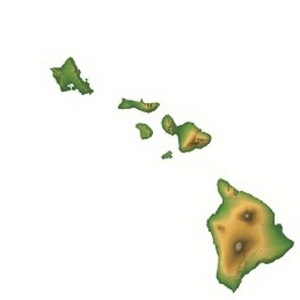Honolulu city council adopts resolution for biodiesel initiative

September 12, 2014
BY Pacific Biodiesel Technologies
On Sept. 10, the Honolulu City Council adopted a resolution requesting the development of a biodiesel initiative for the city’s existing mass transit diesel vehicles.
Introduced by Stanley Chang, Chair of the Committee on Public Works and Sustainability, resolution 14-169 passed through committee late last month for the full Council’s consideration. “I am excited to see that the Honolulu City Council has taken the right step in expanding biodiesel use within the City’s transportation services,” Chang said. “The passing of this resolution demonstrates the Council’s commitment to making Honolulu a more environmentally friendly city.”
Advertisement
Advertisement
The City and County of Honolulu have a commendable track record with biodiesel. Since 2004, the City has successfully integrated B20 biodiesel in a large segment of its municipal fleet, including waste collection trucks. In 2012, the city completed a pilot project with 20 of its fixed route buses. The adoption of resolution 14-169 will allow the Department of Transportation and the City to look to further the use of biodiesel in TheBus and TheHandi-Van fleets comprised of more than 650 vehicles.
Hawaii depends on imported fossil fuels, mostly oil, to sustain more than 90 percent of its energy requirements. While the State has made good strides in creating solar and wind renewable energy sources, the transportation sector lags woefully behind. The good news is that premium quality biodiesel, a renewable alternative to petroleum diesel, is being locally produced on Hawaii Island and distributed throughout the state.
Advertisement
Advertisement
Pacific Biodiesel, a pioneer in the biodiesel industry, manages the Big Island Biodiesel refinery in Keaau, Hawaii. With primary feedstocks of used cooking oil, grease trap waste and waste agricultural oils, this high-quality, locally produced renewable fuel offers both environmental and economic benefits. In light of the recent hurricanes that brushed the Hawaiian Islands, the need for locally produced biofuels was once again brought to mind.
With an in-state biodiesel production capacity of over 5.5 MMgy, the move to a biodiesel blend for Honolulu’s mass transit vehicles is an excellent opportunity to support community-based biofuel production and reduce the need for imported petroleum. It just makes sense.
Related Stories
The USDA has announced it will delay opening the first quarterly grant application window for FY 2026 REAP funding. The agency cited both an application backlog and the need to disincentivize solar projects as reasons for the delay.
CoBank’s latest quarterly research report, released July 10, highlights current uncertainty around the implementation of three biofuel policies, RFS RVOs, small refinery exemptions (SREs) and the 45Z clean fuels production tax credit.
The U.S. EPA on July 8 hosted virtual public hearing to gather input on the agency’s recently released proposed rule to set 2026 and 2027 RFS RVOs. Members of the biofuel industry were among those to offer testimony during the event.
The USDA’s Risk Management Agency is implementing multiple changes to the Camelina pilot insurance program for the 2026 and succeeding crop years. The changes will expand coverage options and provide greater flexibility for producers.
President Trump on July 4 signed the “One Big Beautiful Bill Act.” The legislation extends and updates the 45Z credit and revives a tax credit benefiting small biodiesel producers but repeals several other bioenergy-related tax incentives.
Upcoming Events










